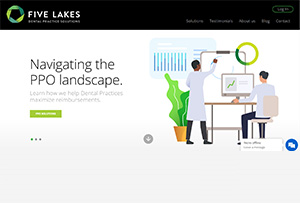- Home
- Industries
- FinTech
Optimize Your FinTech Operations with Personalized and Efficient BPO Solutions
We offer cost-effective and customizable outsourcing solutions designed to seamlessly integrate with your existing systems, enhancing efficiency and scalability.
Trusted by Hundreds of Small and Medium-Sized Businesses for Reliable BPO Solutions












Committed to Security and Excellence: ISO 27001 Certified
At Unity Communications, data security is our priority. Our ISO 27001 certification ensures that we follow globally recognized standards for information security, risk management, and regulatory compliance—giving you peace of mind when outsourcing critical business operations.
Trust us to keep your data safe while delivering world-class BPO solutions.
We Help Your FinTech Business Accelerate Product Development
Front-Office Support
Customer Service
Secure high customer satisfaction and loyalty with seamless and consistent support across various channels, including phone, email, chat, and more.
Payment Support
Ensure timely and accurate payment transactions for customers and clients. Our payment support team covers processing, inquiries, disputes, and other payment concerns.
App management and Support
Reduce customer churn with user-friendly and smooth apps. We offer mobile app support and maintenance, including troubleshooting, debugging, and performance optimization.
Back-Office Support
Subscription Management and Support
Froud Detection and Prevention
Protect your business from data breaches. We use advanced analytics and monitoring tools to identify and prevent fraudulent activities, such as identity theft and financial scams.
Administrative Support
Streamline administrative processes without compromising quality and control. From data entry and record keeping to inventory management, we have you covered.
Why Unity Communications: The Smart Choice for FinTech BPO Solutions
In the fast-paced world of FinTech, efficiency, accuracy, and customer experience are critical to success. Unity Communications specializes in cost-effective, scalable BPO solutions designed to help FinTech companies optimize operations, enhance customer support, and maintain compliance—without overspending. Here’s why leading FinTech brands trust us:
- Achieve 100% operational efficiency by outsourcing your FinTech processes. Our expert BPO solutions help you streamline operations, reduce costs, and focus on scaling your business.
- We deliver a 92% customer satisfaction rate by combining advanced financial technologies with skilled professionals, ensuring seamless support for your clients.
- Your FinTech business operates around the clock—so do we. Our 24/7 support ensures your customers always have access to the assistance they need, no matter the time zone.
With 99.99% accuracy, our intelligent automation and compliance-driven processes minimize financial errors, ensuring secure and precise transactions for your business.
Streamlining FinTech Operations So You Can Focus on Growth.
At Unity Communications, we empower FinTech companies by taking operational challenges off your plate. Our expert BPO solutions ensure seamless support, allowing you to focus on innovation, growth, and delivering exceptional financial services.
Your dedicated FinTech BPO team includes:
- Customized Client Solutions
- Dedicated Account Managers
- Seamless Integration
- Enhanced Data Security
- Scalable Solutions
- 24/7 App Support
- Omnichannel Engagement
- Skilled Customer Support
- Continuous Training Programs
How can we help your business grow today?
Fill out the form, or if you prefer, send us an email or call, and we’ll assist you with your needs.
Smart, Secure, and Scalable: The Unity Communications Advantage
With Unity Communications, you get clear, fixed pricing. Whether you’re paying one employee or a hundred through our platform, we offer a straightforward flat rate per employee
- Access top-quality resources at a lower cost. We provide solutions to accelerate innovation while meeting your budget, allowing you to save up to 80% on operating costs
- Meet changing FinTech market trends with ease. Our specialists are skilled and flexible, able to master new products, services, and policies efficiently.
- Our tools and processes are tailored to integrate smoothly with your existing systems, ensuring smooth operation and enhanced customer experience.
- Whether you're just starting out or you're already an established company, our services adapt and grow with your business.
- Protect your business and customers from data breaches and cyberattacks. We enforce strong data privacy measures to ensure compliance with regulations and to foster confidence among our customers.
- Experience the Unity difference. We have been in the outsourcing game since 2009, helping over 100 global clients and garnering various international awards and recognitions.
Work We Are Proud Of
Explore the best in PPC, SEO and Web Design by Unity Communication

A&A Thermal Spray
Increase in total site traffic
Increase in organic search traffic

AGA Truck Parts
Increase in organic search traffic
Increase in total site traffic

Agape Health & Wellness
Increase in phone calls
Decrease in CPC
A&A Thermal Spray

In today's digital landscape, attracting and converting leads takes more than just throwing content at the wall and hoping it sticks. It requires a strategic,
In today's digital landscape, attracting and converting leads takes more than just throwing content at the wall and hoping it sticks. It requires a strategic,
In today's digital landscape, attracting and converting leads takes more than just throwing content at the wall and hoping it sticks. It requires a strategic,
-
110%
Increase in total site traffic
-
118%
Increase in organic search traffic
AGA Truck Parts

In today's digital landscape, attracting and converting leads takes more than just throwing content at the wall and hoping it sticks. It requires a strategic,
In today's digital landscape, attracting and converting leads takes more than just throwing content at the wall and hoping it sticks. It requires a strategic,
In today's digital landscape, attracting and converting leads takes more than just throwing content at the wall and hoping it sticks. It requires a strategic,
-
1057%
Increase in organic search traffic
-
685%
Increase in total site traffic
Agape Health & Wellness

In today's digital landscape, attracting and converting leads takes more than just throwing content at the wall and hoping it sticks. It requires a strategic,
In today's digital landscape, attracting and converting leads takes more than just throwing content at the wall and hoping it sticks. It requires a strategic,
In today's digital landscape, attracting and converting leads takes more than just throwing content at the wall and hoping it sticks. It requires a strategic,
-
540%
Increase in phone calls
-
11%
Decrease in CPC
Cost-efficient Operational Excellence
Sed ut perspiciatis unde omnis iste natus error voluptatem accusantium doloremque laudantium, totam rem aperam, aque ipsa illo inventore veritatis et quasi architecto-or-less normal an distribution of letters, as consequuntur magni dolores eos qui rationeopposed...

Cost-efficient Operational Excellence
Sed ut perspiciatis unde omnis iste natus error voluptatem accusantium doloremque laudantium, totam rem aperam, aque ipsa illo inventore veritatis et quasi architecto-or-less normal an distribution of letters, as consequuntur magni dolores eos qui rationeopposed...

Interested in Outsourcing Your FinTech Back-Office Roles to Unity Communications?
Get in touch
Schedule a 30-minute call with our founder and CEO
Get a proposal
We’ll identify your needs and provide a proposal in less than 3 days
Meet and greet your new team
We’ll get your entire team onboarded and ready to start working for you in less than 30 days.
What is FinTech BPO?
Business process outsourcing (BPO) is a game-changer in the fast-paced financial technology (FinTech) world. It helps FinTech organizations streamline operations and drive long-term development.
This article looks at how FinTech companies can utilize BPO services to concentrate solely on what they do best while gaining specialized knowledge and increasing operational efficiency. It also explores outsourcing pros and cons, integration best practices, and industry trends, providing unique success strategies.
Continue reading to learn how FinTech companies of any size can prosper in the fast-changing sector through outsourcing.

Making Sense of FinTech BPO
FinTech BPO involves delegating financial technology-related tasks to service providers. These functions can be contracted out to an onshore, nearshore, or offshore BPO provider, allowing FinTech companies to dedicate themselves to their core business and strategic goals. Outsourcing can improve overall output, efficiency, and revenue.
The worldwide FinTech business will expand in leaps and bounds. Fortune Business Insights reports that the market value was estimated at $257.26 billion in 2022 and is expected to hit $882.30 billion by 2030. Projections show a compound annual growth rate (CAGR) of 17% over the eight-year period.
Currently accounting for 2% of global financial services revenue, the FinTech sector is projected to generate $1.5 trillion in annual revenue by 2030, according to the Boston Consulting Group (BCG) and QED Investors. The Asia-Pacific market spearheads this growth, representing 42% of revenue, while North America remains pivotal for innovation.
CEO Review notes that technological advancements, digital transformation, and changing consumer behavior drive FinTech market growth and adoption. Regulatory developments, government initiatives, and investments in FinTech startups also shape the industry, fueling expansion and access to financial services.
The ongoing expansion of the FinTech business offers vast prospects for BPO. As FinTech organizations grow, they require assistance for various non-core operations, such as customer support, back-office functions, and more. BPO providers can meet these requirements, generate demand, and promote collaboration between the two industries.
BPO Services for FinTech Enterprises
Outsourcing gives fintech companies several choices for streamlining operations, reducing expenses, and increasing performance. Its functions are tailored to the needs of the industry. The following are some examples of BPO services:
- Back-office operations. Third-party vendors provide fintech firms with data entry, document processing, and account reconciliation tasks. Their duties include ensuring data accuracy, managing documentation, and supporting operational efficiency for seamless fintech operations.
- Vendor management. BPO organizations offer comprehensive supplier oversight solutions tailored for fintech startups, encompassing vendor contract management, performance monitoring, and compliance adherence. This approach ensures alignment with business objectives while effectively mitigating operational risks.
- Payment processing and transaction support. BPO enterprises provide fintech companies with payment processing and transaction support. They manage transactions, ensure security, handle disputes, and maintain business process outsourcing compliance.
- Customer support. BPO providers offer fintech companies phone, email, live chat, social media, and technical assistance. Their duties include addressing inquiries, resolving issues, guiding users, and ensuring overall satisfaction for optimal service delivery.
- Marketing and lead generation. BPO partners deliver web advertising, lead generation, client acquisition, and other marketing services. They help financial companies reach their target audiences, raise brand recognition, and acquire consumers with personalized advertising.
- Data analytics and reporting. BPO vendors provide data mining, trend analysis, and customized reporting. Their duties entail extracting insights, identifying patterns, generating reports, and informing strategic decision-making.
- Information technology (IT) support and infrastructure management. Service providers offer fintech companies IT support, including network maintenance, software updates, cybersecurity, and cloud management. They ensure system reliability, data security, software functionality, and infrastructure optimization.
Principal Concerns Among Fintech Enterprises
Rapid innovation and disruption characterize the fintech industry. While businesses pioneer groundbreaking solutions, they also grapple with challenges. The following are the primary issues fintech businesses confront in the industry:
- Regulatory compliance. Fintech companies often operate in heavily regulated banking, payments, and lending sectors. Compliance with complex laws demands significant resources and expertise.
- Security and data privacy. Fintech firms handle sensitive financial information, making them vulnerable to data breaches. Ensuring robust security measures and compliance with data privacy regulations, including the General Data Protection Regulation (GDPR), is essential.
- Trust and reputation. Building trust with financial stakeholders is critical for developing fintech startups. However, establishing credibility and sustaining a favorable reputation in the market can be difficult.
- Intense competition. Fintech enterprises compete with traditional banks, established financial firms, and startups. Gaining market share, brand recognition, and trust in the saturated market poses challenges.
- Talent acquisition and retention. Attracting and retaining skilled fintech talent is challenging due to the current digital and skill gaps in the global workforce. Businesses in this sector must offer competitive salaries, abundant career opportunities, and a supportive culture to retain vital talent in the competitive job market.
- Funding and capital access. Due to market uncertainties, securing fintech funding is complicated. Businesses that cannot persuade investors of their scalability, profitability, and distinctiveness might struggle to get the necessary capital, stifling their growth and potential success.
- Technological innovation. Firms that struggle to keep up with tech advancements and research and development efforts risk falling behind competitors. They need to innovate to stay relevant in a constantly changing market.
BPO providers can assist fintech companies in addressing their obstacles by providing advantages that promote their growth and market sustainability. Let us discuss further.
Advantages of BPO for Fintech Enterprises
BPO offers several advantages to address the principal concerns among fintech enterprises:
- Regulatory compliance expertise. Finance process outsourcing deals with complicated legal environments, providing fintech companies with specialist knowledge and resources to guarantee compliance with financial rules.
- Enhanced security measures. BPO companies develop strong cybersecurity and data protection safeguards, lowering the risk of cyberattacks and data breaches for fintech companies.
- Increased trust and reputation. Outsourcing consumer care and other fintech procedures to specialist BPO organizations can help companies gain the trust of their customers, clients, and suppliers, improving their industry image.
- Competitive advantage. Enterprises can build a competitive advantage by utilizing fintech BPO services and focusing on their core skills, such as product development and innovation. At the same time, service providers manage non-core operations well.
- Cost-effective solutions. Outsourcing fintech activities to third-party vendors can reduce infrastructure, labor, and operating expenditures. This allows fintech companies to better manage resources.
- Scalable functions. BPO services can expand to meet the demands of fintech companies, accommodating changes in transaction volumes and allowing for quick entry into new markets.
- Accessible advanced technology. BPO enterprises invest in advanced technology and infrastructure, giving fintech companies access to cutting-edge tools and resources that promote innovation and efficiency.
- Improved risk management. BPO partners can assist fintech companies with handling regulatory compliance and minimizing risks connected with financial transactions, improving overall risk and compliance management.
- Global reach and localization. Third-party vendors with a worldwide presence can support fintech enterprises in expanding their operations internationally and providing localized services and support to customers in different regions.
- Optimized resources. Enterprises can save time and money by outsourcing fintech procedures to BPO vendors. This allows them to focus on strategic projects and corporate growth, enhancing overall efficiency and productivity.
Overcoming Fintech BPO Obstacles in Tech Ventures
While BPO provides various advantages, fintech companies can face obstacles that require tactical planning. The following section explores fintech companies’ main outsourcing challenges and how to address them.
Budget oversight. For fintech companies outsourcing to BPO providers, neglecting to reconcile cost-effectiveness with service quality and value can lead to degraded service delivery and lower profitability.
- Recommendation: Improve cost management tactics, bargain reasonable pricing structures, and prioritize investment returns while retaining superior customer service.
Integration difficulties. Embedding BPO services into existing processes and structures can take time and effort, resulting in operational interruptions, compatibility issues, and reduced efficiency.
- Recommendation: To guarantee efficient integration, build thorough integration plans with BPO vendors, optimize procedures, and address interoperability concerns.
Information security and regulatory adherence. Entrusting crucial tasks to third-party firms might generate data security and privacy issues.
- Recommendation: Confirm that BPO partners use solid safety protocols and conform to regulatory requirements, including the Health Insurance Portability and Accountability Act of 1996 (HIPAA), the Payment Card Industry Data Security Standard (PCI DSS), and GDPR.
Interaction and joint efforts. Insufficient communication and collaboration in a remote BPO setting, especially when dealing with offshore or nearshore third-party professionals, can lead to project delays, disruptions, and mistakes.
- Recommendation: Establish clear communication lines, employ project management tools, and hold regular meetings to ensure coordination, openness, and reliability among each group concerned.
Selecting the Ideal Fintech BPO Partner
Hiring reliable business process outsourcing companies is essential for fintech organizations’ general success. Consider these factors to determine the best BPO partner:
- Compliance capability. Check the BPO partner’s experience with fintech-related regulatory compliance, such as data security and banking rules. Verify prospects’ credentials to ensure they are focused on adherence.
- Clarity and transparency. Examine the BPO partner’s communication strategies and accountability. Look for BPO partners that prioritize open and direct communication, provide frequent notifications and reports, and respond to inquiries and ideas.
- Pricing system. Evaluate the BPO provider’s pricing scheme. Emphasize value over money, looking for competitive prices, excellent services, and demonstrable business advantages.
- Alignment with organizational culture. Analyze the cultural fit of the fintech firm and its BPO partner. Look for partners who share your values, work ethic, and business culture for effective collaboration.
- Domain understanding. Search for BPO prospects with extensive financial experience. Previous experience with financial businesses demonstrates a familiarity with their issues and regulatory requirements.
- Record of success. Consider the BPO partner’s history. Examine client feedback, case studies, and success stories to determine their consistency in producing results.
- Flexibility. Determine the scalability and flexibility of the BPO partner’s services. Fintech businesses require partners that can adapt to their changing demands. Seek customizable solutions and flexible engagement approaches.
- Technology expertise. Explore the BPO partner’s technical competence and infrastructure. Validate they have cutting-edge technology, robust security measures, and innovative fintech tools.
Top Techniques for Embedding Fintech BPO Into Operations
To increase output, productivity, and revenue, fintech organizations must incorporate BPO services through extensive preparation, transparent communication, and intelligent execution. The following are some techniques for integrating outsourced services into fintech operations:
- Outline defined purposes. Before integration, detail outsourced goals and expectations. Determine which tasks to delegate and set quantifiable improvement targets.
- Develop sturdy communication networks. Direct interaction is essential for BPO integration. Establish explicit routes and standards for engagement. Periodic meetings and feedback sessions help retain consistency and openness during integration.
- Formulate elaborate integration strategies. Build clear integration plans that outline stages, deadlines, and responsibilities for BPO integration. Establish workflows, procedures, and data standards to ensure a smooth transition with few disruptions.
- Offer thorough instruction and assistance. Provide extensive training and assistance for internal and BPO team members during integration. Confirm all personnel understand their positions and duties and apply systems.
- Deploy reliable technology applications. Implement technology to ensure seamless interaction. Use cloud platforms, project management tools, and communication systems to simplify procedures, record progress, and assess performance more effectively.
- Track results and progress. Check the performance of the BPO team to identify faults and make changes. Monitor key performance indicators (KPIs) to assess the success of outsourced and overall company operations.
- Cultivate a collaborative ethos. Promote interaction and collaboration between fintech firms and BPO providers. Encourage regular communication, knowledge sharing, and mutual respect to enhance partnerships.
Emerging Fintech BPO Trends Affecting Tech Enterprises
Advancements in the BPO industry influence how fintech firms use outsourcing to simplify operations, increase efficiency, and maintain competitiveness. Discover some upcoming outsourcing trends that can affect businesses:
- Transition to result-centric models. Outcome-based models that tie payment to specific results will replace BPO’s hourly fees and fixed-term agreements. Fintech businesses choose such structures for greater flexibility and transparency. This trend encourages BPO providers to focus on producing concrete, valuable outcomes.
- Emergence of sector-specific BPO firms. As fintech companies continuously need tailored expertise and solutions, the number of niche BPO providers in the market will increase. These providers will offer customized services, such as regulatory compliance and cybersecurity.
- Adoption of high-level automation. Artificial intelligence (AI), machine learning (ML), and other intelligent innovations will reshape BPO. They can assist fintech companies in simplifying operations, enhancing accuracy, and boosting customer service, data processing, and compliance effectiveness.
- Emphasis on sustainability and ethical business practices. Fintech firms increasingly focus on eco-friendly initiatives and corporate social responsibility (CSR). They require third-party vendors that match their values. BPO partners must pledge to be environmentally responsible and inclusive and participate in community activities.
- Priority on enhancing customer experience. As client experience becomes more critical in fintech, BPO businesses promote exceptional service. Entrepreneurs rely on trained professionals to handle inquiries, resolve issues, and deliver unique multichannel experiences.
The Bottom Line
BPO has a transformative influence on fintech companies, speeding up processes, increasing efficiency, and spurring advancement.
Outsourcing also allows fintech businesses to hone in on their most significant assets as the industry evolves. BPO can improve customer-centricity, compliance, and growth by leveraging automation, outcome-based models, and specialized expertise.
Let’s connect if you want to join forces with Unity Communications and see how we can help you grow your business!
Let’s Talk About Growth – Schedule a Free Discovery Call
with Patrick Brown
Get expert insights on optimizing your operations. Schedule a 30-minute consultation with our CEO today and discover how Unity Communications can elevate your FinTech business.
Frequently Asked Questions and Answers
* Customer support & subscription management (chat, email, phone, and omnichannel support)
* Payment processing & fraud detection (secure transactions, dispute resolution, compliance)
* Back-office operations (data entry, document processing, and administrative support)
* App management & IT support (troubleshooting, updates, and optimization)
* Data analytics & reporting (trend analysis, risk management, compliance reporting)
* Customized solutions tailored to your business needs
* Dedicated account managers for seamless collaboration
* 24/7 customer & app support to meet global demands
* Omnichannel engagement for a better customer experience
* Advanced security protocols to ensure compliance and risk mitigation
Let’s Connect and Explore
Looking to Meet Now? Schedule A Meeting Today
